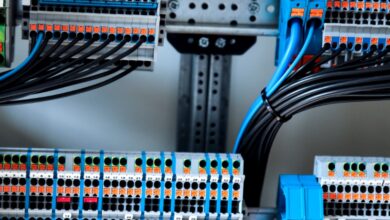Artificial Intelligence to Be Used in the Solar System

Human exploration and understanding of the solar system have always been intriguing in the vast expanse of the cosmos. Integrating Artificial Intelligence (AI) into space exploration has opened up new possibilities and avenues for unraveling the mysteries of our celestial neighborhood. This article delves deep into the exciting prospect of using AI in the solar system, exploring how this cutting-edge technology revolutionizes our understanding and interaction with space.
Artificial Intelligence in the Solar System
Using AI in space exploration marks a significant leap in our ability to venture deeper into the solar system. AI technologies, such as machine learning and neural networks, have paved the way for autonomous decision-making by spacecraft, enhancing their adaptability and responsiveness in remote environments.
The Role of AI in Autonomous Spacecraft
In space exploration, integrating Artificial Intelligence (AI) into autonomous spacecraft has transformed how we navigate and interact with the cosmos. AI, with its advanced algorithms and machine learning capabilities, has become an indispensable tool for making spacecraft more self-sufficient and adaptable in the challenging environment of space.
Enhancing Autonomy
One of the primary roles of AI in autonomous spacecraft is to enhance their autonomy. Traditionally, spacecraft heavily relied on pre-programmed instructions and constant communication with Earth for guidance. However, with AI on board, these spacecraft can make decisions on their own based on real-time data and predefined objectives. This means they can adapt to unexpected situations and execute tasks without continuous human intervention.
Real-time Decision Making
AI-equipped spacecraft can analyze their surroundings in real time. They can identify potential obstacles, such as space debris or changes in the gravitational field, and make instant decisions to avoid collisions or adjust their trajectories. This real-time decision-making capability is crucial for the safety of missions, especially when communication delays with Earth can be significant.
Adaptive Navigation
Spacecrafts often encounter dynamic and unpredictable environments during their missions. AI enables these spacecraft to navigate these challenges by continuously assessing their surroundings. They can choose the most efficient routes, adjust their speeds, and optimize energy consumption, all while considering the changing conditions in space.
Efficient Resource Management
AI also plays a pivotal role in managing the resources on board spacecraft. Whether it’s fuel, power, or scientific instruments, AI algorithms can optimize their usage. For example, an AI system can decide when to power down non-essential systems to conserve energy or when to prioritize specific scientific experiments based on the spacecraft’s objectives.
Autonomous Exploration
One of the most exciting applications of AI in autonomous spacecraft is planetary exploration. Rovers and landers equipped with AI can navigate the challenging terrains of other celestial bodies, such as Mars or the Moon. They can choose safe paths, avoid obstacles, and even make scientific discoveries autonomously. This level of autonomy opens up new possibilities for uncovering the secrets of our solar system.
Read More: Latest Artificial Intelligence Plans for 2023
AI in Astronomical Discoveries
Astronomical discoveries have reached new heights with the assistance of AI algorithms. AI has accelerated our understanding of the universe, from identifying exoplanets to analyzing vast datasets from space telescopes.
Enhancing Communication with Deep Space Probes
Artificial Intelligence in the Solar System: Deep space probes often face communication challenges due to the vast distances involved. AI-enhanced communication systems enable these probes to optimize signal transmission, ensuring that valuable data reaches Earth with minimal delay.
AI-Driven Space Telescopes
Artificial Intelligence in the Solar System: Space telescopes equipped with AI can autonomously prioritize observation targets based on scientific objectives and dynamically adjust their configurations for optimal data collection.
AI and Planetary Exploration
Artificial Intelligence in the Solar System: Robotic missions to planets and moons within our solar system benefit greatly from AI. These missions can adapt to unforeseen obstacles and make intelligent decisions based on their surroundings.
Robotic Missions Empowered by AI
Artificial Intelligence in the Solar System: Robotic missions in space have entered a new era of capability and sophistication, thanks to the integration of Artificial Intelligence (AI). AI has become the driving force behind these missions, enabling robots and spacecraft to perform tasks with unprecedented autonomy, precision, and adaptability. In this section, we will explore AI’s profound impact on space robotic missions.
Autonomous Navigation
One of the most significant contributions of AI to robotic missions is autonomous navigation. Spacecraft and rovers equipped with AI can independently plan and execute complex maneuvers, adapt to unforeseen obstacles, and make crucial decisions in real time. This level of autonomy is essential for missions to distant planets, where communication delays with Earth can be substantial.
Hazard Detection and Avoidance
AI algorithms enable robotic missions to identify and avoid hazards autonomously. Whether treacherous terrain on a planet’s surface or potential collisions with space debris, AI-equipped robots can analyze their surroundings and take proactive measures to ensure their safety. this capability is especially vital for missions that involve landing on or exploring challenging environments.
Scientific Discovery
AI empowers robotic missions to make scientific discoveries on their own. Space rovers, for instance, can use AI to analyze rock formations, soil samples, or atmospheric conditions to identify interesting phenomena or signs of past life. This autonomous scientific exploration expands our understanding of other celestial bodies.
Adaptability in Harsh Environments
The ability to adapt to harsh and unpredictable environments is a hallmark of AI-driven robotic missions. Whether it’s extreme temperatures, radiation, or dust storms, AI systems can adjust the operation of spacecraft and robots to maximize their lifespan and mission success.
Data Processing and Analysis
In the vastness of space, robotic missions generate an immense amount of data. AI is crucial in processing and analyzing this data in real-time. It can identify patterns, anomalies, and scientific insights that might be missed by manual analysis, enabling scientists to make informed decisions during the mission.
Collaboration with Humans
AI-enhanced robots are not meant to replace human involvement but to enhance collaboration. They can work alongside astronauts on space stations or support teams on Earth, performing repetitive or too-dangerous tasks for humans. This collaborative approach expands the range of missions that can be undertaken.
Future Exploration
The future of robotic missions in space looks promising, with AI at the forefront of innovation. As AI technology continues to evolve, we can expect even more advanced robots and spacecraft capable of tackling ambitious missions, from exploring the icy oceans of Europa to prospecting asteroids for valuable resources.
AI’s Contribution to Space Weather Prediction
Artificial Intelligence in the Solar System: Space weather can impact space missions and Earth. AI models are now used to predict solar flares, geomagnetic storms, and other space weather phenomena, allowing for proactive measures.
AI for Space Mining
Artificial Intelligence in the Solar System: Space mining is becoming a reality, with AI-assisted spacecraft prospecting asteroids and other celestial bodies for valuable resources like water and minerals.
Sustainability and AI in Space
Artificial Intelligence in the Solar System: AI also contributes to sustainable space exploration by optimizing resource management and minimizing waste, ensuring a more environmentally conscious approach to space missions.
Ethical Considerations in AI Space Exploration
Artificial Intelligence in the Solar System: As AI becomes increasingly integrated into space exploration, ethical questions arise concerning its use, potential biases, and the responsibility of humans in supervising AI systems in the cosmos.
The Future of AI in the Solar System
Artificial Intelligence in the Solar System: The future of AI in the solar system is boundless. As technology advances, AI will enable more ambitious missions, from exploring distant planets to setting up sustainable habitats in space.
Read More: How to Save Energy and Money in 2023
Conclusion
Integrating Artificial Intelligence (AI) into space exploration has ushered in a new era of discovery and innovation in our quest to understand the solar system’s mysteries. Throughout this article, we have explored the multifaceted role of AI in various aspects of space exploration, from autonomous spacecraft to robotic missions on distant celestial bodies.
AI’s ability to enhance autonomy, facilitate real-time decision-making, and adapt to dynamic environments has transformed how we conduct space missions. It has allowed spacecraft and robots to operate more efficiently, safely, and precisely, even in harsh and unpredictable space conditions.
Moreover, AI has revolutionized our ability to make astronomical discoveries, predict space weather, and optimize resource management in space missions. It has opened up the possibility of space mining, sustainable space exploration, and establishing habitats on other celestial bodies.
FAQs
FAQ 1: How does AI help in planetary exploration?
AI enables robots and spacecraft to make autonomous decisions, navigate unknown terrains, and conduct experiments on other planets.
FAQ 2: What ethical concerns are associated with AI in space exploration?
Ethical concerns include:
- Biases in AI algorithms.
- The need for human oversight.
- The potential impact of AI on celestial ecosystems.
FAQ 3: Can AI predict space weather accurately?
Yes, AI models have improved the accuracy of space weather predictions, helping protect both space missions and Earth.
FAQ 4: What is the significance of space mining with AI?
Space mining can provide access to valuable resources for future space missions and sustainability, and AI makes the prospecting process more efficient.
FAQ 5: What is AI’s most exciting potential future application in space exploration?
One of the most exciting prospects is the establishment of sustainable habitats on other celestial bodies, made possible through AI-driven technologies.











